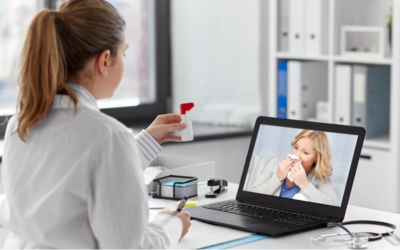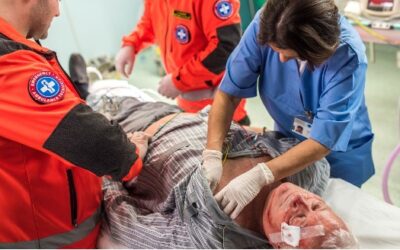3 Ways Simulation Helps Providers Address Telehealth Access Disparities
In the realm of telehealth, ensuring equitable access is a pressing issue. At SP-ed, we believe simulation can make a big difference. Our latest article delves into the three key areas where this training can bridge the gap, from cultural competency to digital literacy.
Unmasking Depression in Transgender Patients: Risk Factors, Assessment, and Resilience Building
Seeking a deeper understanding of mental health issues in transgender patients? Our new article details risk factors, assessment techniques, and self-managed coping strategies to guide your practice.
Beyond Cultural Competency: The Role of Authenticity and Honesty in LGBTQ+ Patient Care
Find out in our latest article how the strive for cultural competency, particularly in the care of LGBTQ+ patients, can sometimes lead to unintended consequences and overshadow the importance of authenticity.
Fostering Comfort and Autonomy: The Need to Adapt Physical Examinations for Transgender Patients
Our latest article delves into the unique healthcare needs of transgender patients, with a special focus on physical examinations. Discover the potential of gender-affirming language, the value of self-examinations, and how health professionals can cultivate comfort and trust.
Redefining Nursing Skills for the Digital Age: How Standardized Patients Enhance Telemedicine Training
From remote patient assessment to home-care instructions, telemedicine nursing is a world of its own. Read our latest article to find out how remote standardized patients can help nurses refine their skills in this exciting new field.
Investing in Standardized Patients: The Smart Move for Health System Success and Patient Satisfaction
Standardized patients, especially those based remotely, offer myriad benefits to reinforce your hospital’s commitment to top-tier patient care.
Enhancing PrEP Consultation for LGBTQ+ Patients: The 5Ps Method and Cultural Competence
Preventing HIV in the LGBTQ+ community goes beyond medical prescriptions. Discover how cultural competence and the 5Ps method play a key role in assessing the need for Preexposure Prophylaxis (PrEP) among LGBTQ+ patients.
Five Techniques for Respectfully Conducting a Sexual History with LGBTQ Patients
The relevance of taking an extensive sexual history with LGBTQ+ patients cannot be overstated – however, initiating this conversation can feel challenging for both providers and patients when the provider may not have a lot of experience with diverse patient...
Overcoming the Challenges in Providing Gender-Affirming Care: A Call for Structured Training
The LGBTQ community has unique healthcare needs, and it is crucial for healthcare providers to have training in using gender-affirming language and techniques. However, a lack of education in medical schools and few opportunities for hands-on training pose significant...
From Bedside to Web-Side: The 4 Challenges of Developing a Forward-Looking Telehealth Curriculum
Today's medical students will encounter telemedicine in their clinical careers, and the academic medical community faces various challenges to keep pace with the growing need for telemedicine training. In their efforts to develop the much-needed telehealth curricula,...










